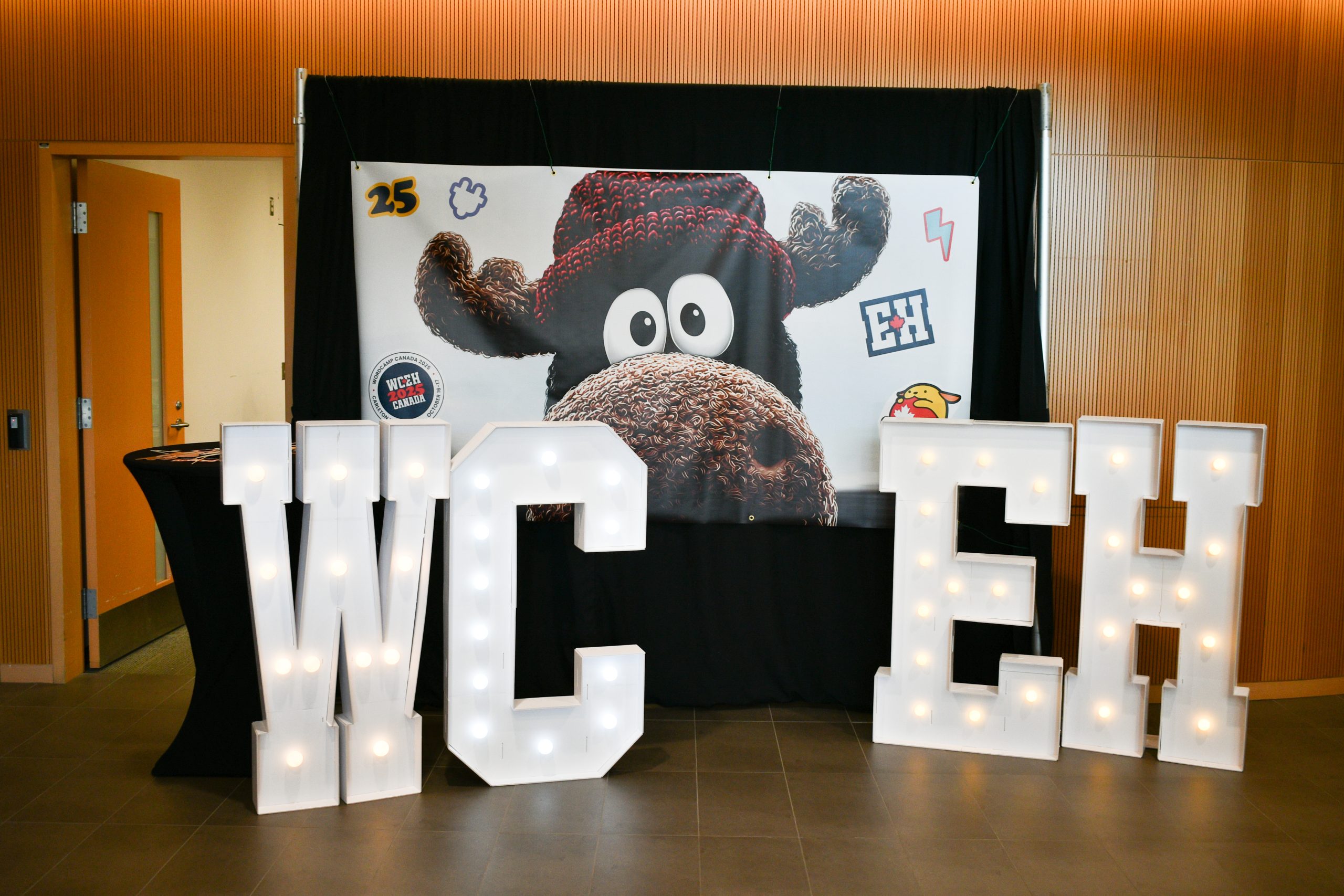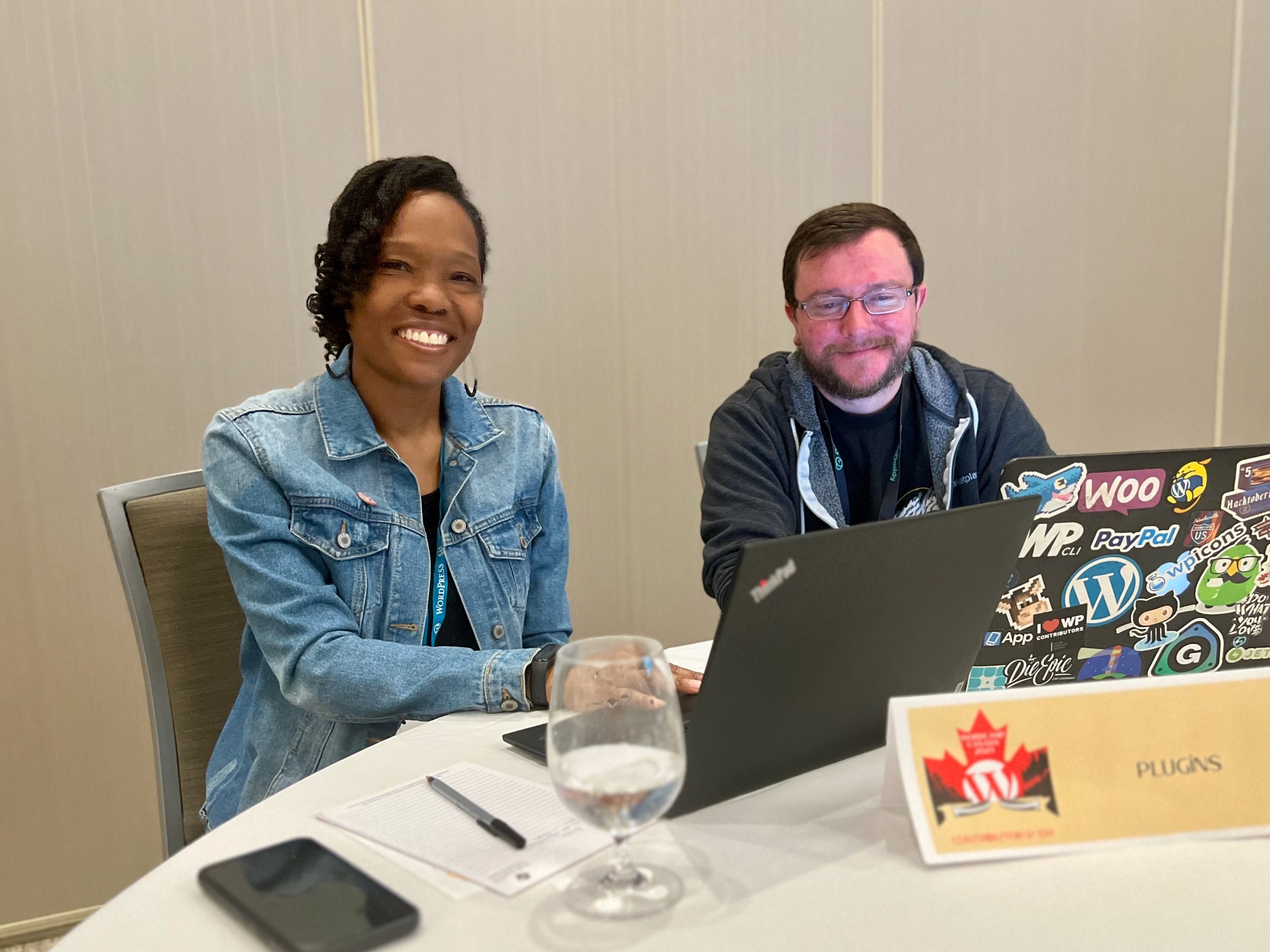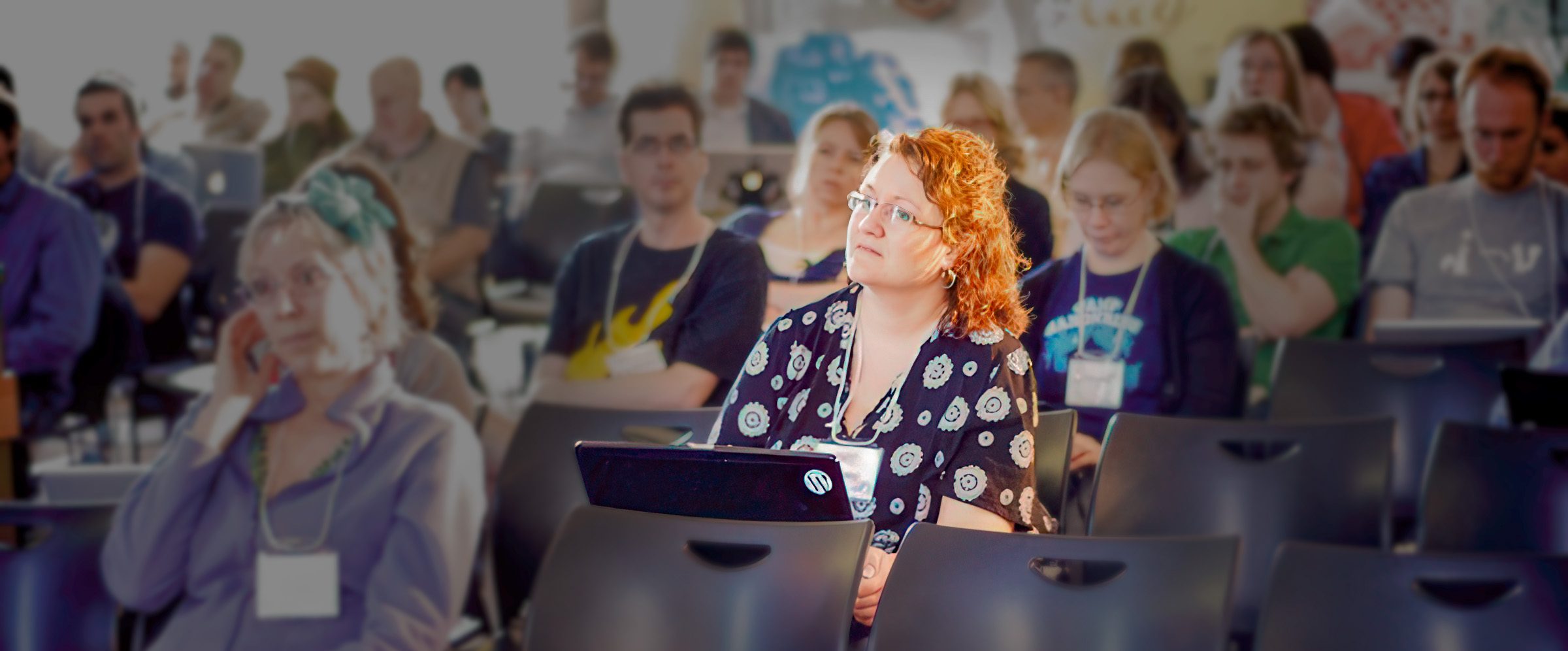
And just like that… we’ve #wceh2025 in the rear view. Have you had a chance to think about what happened? What went well? What could have been better? Have you dug out the business cards, connected on LinkedIn and socials?
Lois Chan-Pedley said this about the After Party:

“The after party at Craft Beer Market was so incredibly well attended that many of us had to squish together in booths to chat!

“When food and drinks flow freely, so do relationships. Everyone was super generous with their time and conversation. Many took deeper dives into the conference topics, made professional connections, perhaps even advanced the open source community in the beautiful incremental way that true and lasting change does. (We also watched the Blue Jays win, which is also beautiful!)”
Credit Where It’s Due

We can’t pass up the opportunity to thank the incredible community that made this event happen – the volunteers (organizers, speakers, registration folks, bloggers, social media, designers, photographers – all of you).
In lots of the feedback responses we heard about your impact on the overall event:

Kudos and Successes
Community & Atmosphere
We got lots of feedback, as organizers, on the community of WordPress and open source in general. From attendees to sponsors, the reports range from warm and fuzzy to downright inspiring.

The open discussion, even by the co-founder of WordPress, created an even more open and accessible discussion. Matt Mullenweg, didn’t shy away from the tough questions, and reminded us all that “Every saint has a past, every sinner has a future,” he said. “I never want to define any company or any person as permanently good or bad.” (Read the overview at the Repository)

Venue & Location
Carleton University in Ottawa was beautiful this time of year. And the accessibility made it easy for every attendee to feel welcomed.

Topics & Sessions
Topics such as accessibility, dev workflows, full-site editing, AI in WordPress, and the broader “open web” narrative were featured. On this we’ve had a wide array of feedback – from ‘excellent’ to too narrowly focused. And several respondents wanted more development – focused topics.

Networking & business value
Sponsors and agencies commented positively about being able to attend, connect, and share in the event. Vortex Solution said the event was “nothing short of inspiring; a mix of learning, connection, innovation, and community pride.”

Some commentary noted that attendees ranged from beginners to advanced users, developers to agencies—so the conference provided both entry-level and advanced value to our sponsors.
Challenges & Needed Improvement
Depth vs. Breadth
As is often the case with conferences of this nature, if we go broad in topics (which is the goal), the depth can often suffer. For future reference, we may want to be intentional about choosing speakers who will go in-depth on a few topics, as well as introductory sessions.

Recordings & Live Streaming
This year we didn’t get the live-streaming set up and I gather it was missed by a few folks. Matt live-blogged his pepared talk ahead of the question period, and we got the video of his Townhall Q&A session uploaded rather quickly to WP.tv. We’re working on the other sessions as I write this — thanks to our amazing post-processing volunteers and photographers!

Value Capture
We had a few comments on the lack of official networking opportunities. Generally, networking is relegated to the ‘hallway track’ – wherein we mingle and try to meet folks.
What do you think of the idea of prescriptive networking? Like speed-dating for agencies/ attendees? I’d love to hear your thoughts!

“I am very interested in finding ways to revitalize the stagnant web. WordPress has the potential to play such a huge role in breaking down the barriers we have just accepted over the last decade.” ~ Jonathan Desrosiers
What comes next?
WCEH 2026 of course!
If you’re interested in getting involved in making this event a possibility for 2026, please complete an interest form here. Join us for an information session!
Fellow Attendee Thoughts & Wrap-ups
Here’s a bunch of wrap-ups that I could find online and were tagged in Slack. If you have one — add it in the comments. We’ll read up and see what you thought and what we can do to make it better next year!
- Shawn was a volunteer. So were Chris and Lois.
- Web Hosting Canada was a sponsor.
- Audrey from Carleton’s School of Journalism wrote about Matt’s Townhall for The Repository, and also about the keynote speakers and conference themes.
- We got a mention in Techcrunch.
- Speakers Brent and Shanta blogged about their WCEH experience and shared their slides. So did Jonathan, while also sharing his thoughts about WordPress “revitalizing the stagnant web.”
Add yours in the comments!
Updated:

















